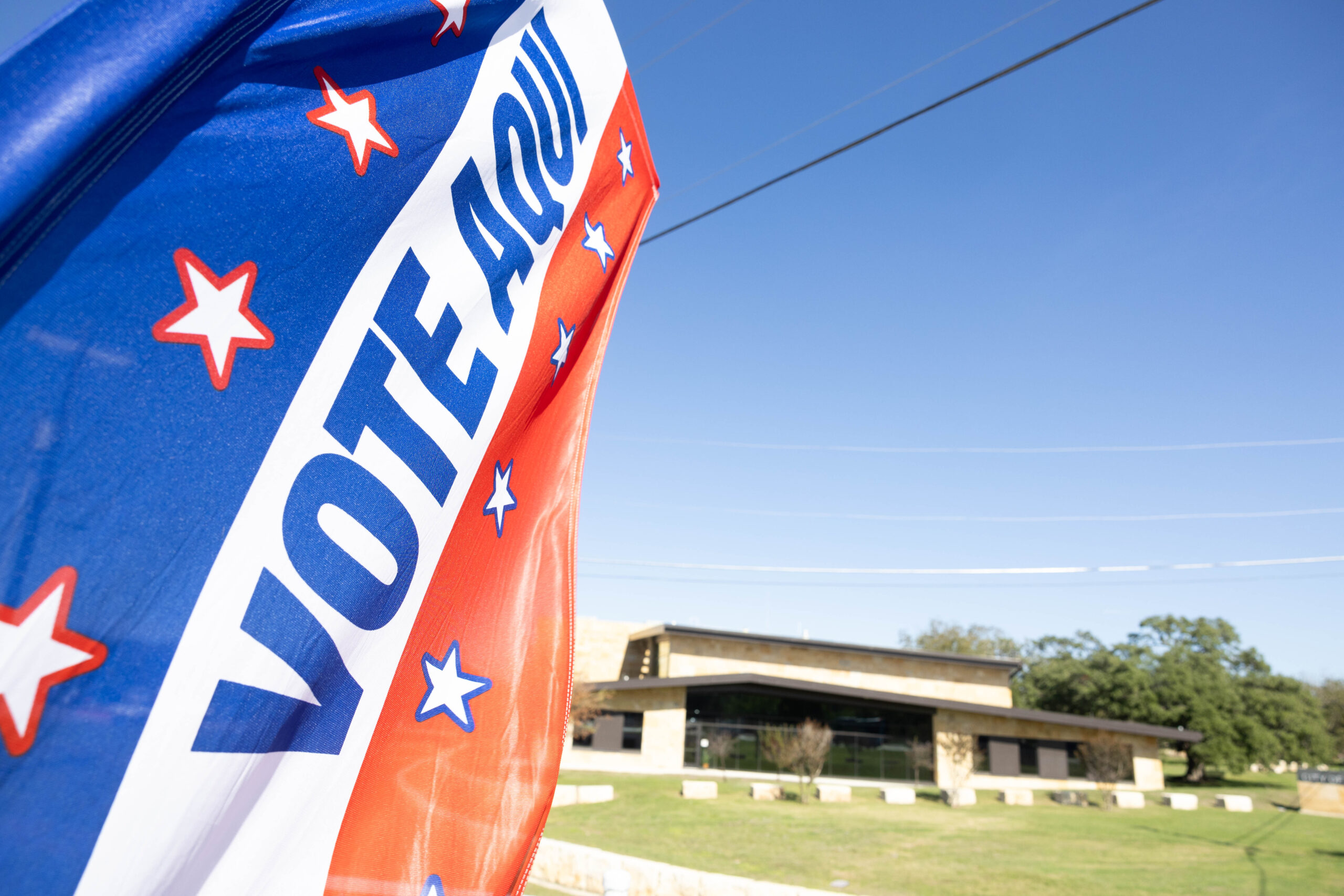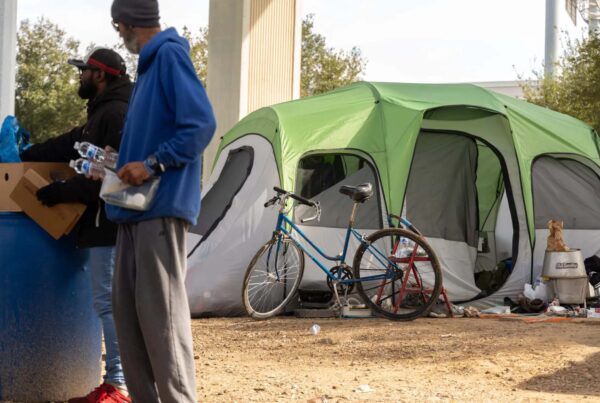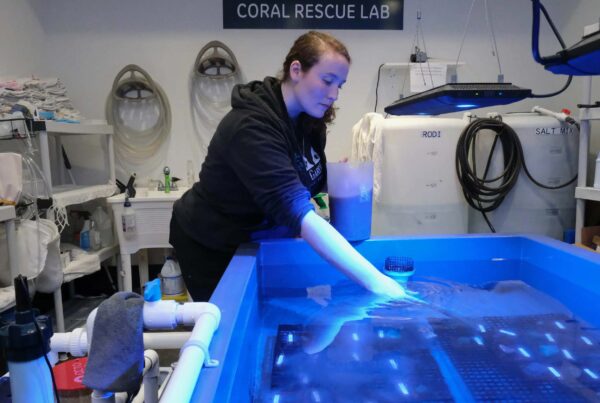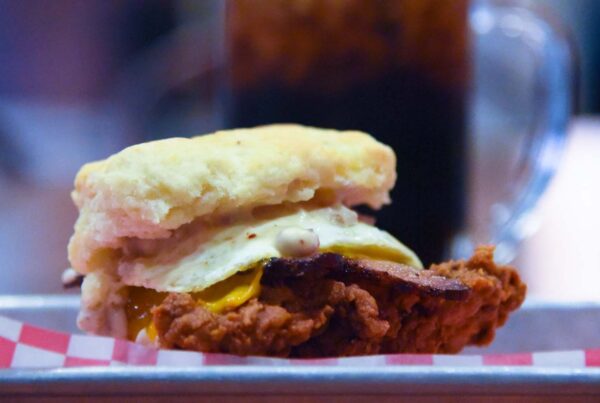Primary elections for both Republicans and Democrats are shaping up to give voters a chance to weigh in on major schisms between party factions in Texas.
On the Republican side, many differences of opinion rest on the policies and approach of former President Donald Trump. For Democrats, candidates with progressive ideas are facing off against those who lean moderate, and say they’re interested in working on a bipartisan basis in Washington.
Alexandra Samuels, a senior editor at Texas Monthly covering politics, and Mark Jones, a political science fellow at Rice University’s James A. Baker III Institute for Public Policy, broke down some of the state’s biggest primary races. Listen to the interview above or read the transcript below.
This transcript has been edited lightly for clarity:
Texas Standard: Now, before we get into the state races, let’s talk some presidential politics here. Former President Trump is leading in all the polls, from what we can tell. But Nikki Haley, I understand, made some campaign stops in Texas. Alex, did you pick up on any message to voters here?
Alexandra Samuels: Yes. So Haley pitched herself as the best person to vote for if people want to see something new.
So for at least the past year or so now, voters across the nation have told pollsters that they don’t want a repeat of the 2020 election, meaning they don’t want to see Biden versus Trump again, even though that’s looking more and more likely. But Haley was telling Texas voters that if they really do want to go in another direction, she’s the best and really only candidate for them.
Plus, Texas is an open primary state, and Haley’s implied previously that she wants Democratic and independent voters to cross over and cast ballots in the GOP primary to cut into Trump’s lead here.
The problem with her message is that it’s falling on deaf ears, or at least it seems to be. So, Mark, I believe it was your poll from the University of Houston that gave Trump like a 60 percentage point lead.
Mark Jones: Yeah, it was 80% to 19%.
Wow. That’s remarkable. I remember we talked about that a little bit earlier, but, professor, what do you think about that open primary aspect of this race? I mean, is it possible we’ll see a lot of Democrats perhaps moving to support Haley, given her direct appeal to them?
Mark Jones: That’s very doubtful. We tend to not have that much crossover voting. And effectively for many Democrats, while they would prefer Haley to Trump, they prefer Joe Biden than Nikki Haley. And so they’re very unlikely to get involved in the primary.
For it to work it, requires perhaps Nikki Haley doing a concerted outreach effort among Democrats and independents. But the more you do something like that, the more it boomerangs on you and causes Republicans to desert you. So Haley’s in a really difficult situation. She faces a primary in her home state of South Carolina on the 24th, where she’s likely to lose by 30 points.
Right now, the message she gave us in Texas was she’s going to stay in till the bitter end and she is the last person standing, but it’s going to be tougher and tougher for her to stay in the race if she is delivered a shellacking in her home state of South Carolina and then on Super Tuesday does very poorly, as seems to be the case.
It seems like there’s another major race we should turn our attention to, maybe the biggest in Texas right now – the Senate primary race, on the Democratic side. This, by the way, for the seat that’s currently held by incumbent Ted Cruz on the Republican side. On the Democratic side, you have a very crowded field with frontrunners Colin Allred and Roland Gutierrez. Alex, what are you looking for in that race?
Alexandra Samuels: I’m interested to see whether this race will go into a runoff. And just on the polling we’ve seen, I’d say that’s incredibly likely.
Allred, of course, has this huge fundraising advantage over everyone else in the field. And I’ve seen over the last couple of days that he’s racked up pretty notable endorsements from a number of editorial boards. But still, there’s a large chunk of voters who don’t know who he is and perhaps more notably, don’t know who they’re going to support in the race.
So in a recent story I wrote on the race, we cited a January poll from Emerson College which showed Allred netting only 29% support, compared with Gutierrez’s 7%. But the number that stood out to me is that 37% of respondents were still undecided in this race, with just a few weeks out.
» RELATED: Check out our interviews with both Rep. Colin Allred and state Sen. Roland Gutierrez
Mark, I want to turn to you about this race in the Houston area, the 18th Congressional district. Democrat Sheila Jackson Lee running again after her loss for Houston mayor. Some are saying this primary could be her most competitive in years. Is that how you see it?
Mark Jones: Oh, definitely. I mean, this is really the most competitive primary she has had since her first one back in 1994, when she actually won the seat for the first time. She’s challenged by Amanda Edwards, a former city council member who’s out-fundraised the congresswoman and I think is in striking distance.
It’s one of those races where the congresswoman – that’s Sheila Jackson Lee as we referred to her in Houston, ‘the congresswoman’ – she has a substantial base of support that’s very loyal and very, very likely to turn out for. But if Amanda Edwards can get more nontraditional voters, younger voters and Anglo voters in this African American-majority district to turn out in larger numbers, she has a realistic chance of defeating Jackson Lee. And since there’s a third minor candidate in the race, there’s always the possibility that this goes to a may runoff.
But this is clearly the biggest threat that Jackson Lee has ever had. And it’s ironic in that the only reason why Amanda Edwards is running against Sheila Jackson Lee is that Sheila Jackson Lee ran for mayor. And had she won, then there wouldn’t have been an issue. But since she lost, now she’s facing Amanda Edwards because Amanda Edwards was running for mayor, but left the race when Sheila Jackson Lee entered it.
Alex, let’s talk about Congressional District 26 – a North Texas seat, made vacant by retiring Michael Burgess, a Republican. Very crowded field. What can you tell us about it?
Alexandra Samuels: It is a very crowded field. In total, there are 11 candidates running in the GOP primary, and many of them have pretty impressive resumes.
So Luisa Del Rosal, for instance, previously helped lead the office of Rep. Tony Gonzalez in the 23rd Congressional district. Scott Armey, the former Denton County judge, is also in the race. But right now, the frontrunner to replace Burgess is a 29-year-old newcomer named Brandon Gill.
So you might not have heard of Gill before, but you almost certainly have heard of his father-in-law, Dinesh D’Souza. So Gill has the endorsement of Ted Cruz and Donald Trump and is pitching himself sort of as an extension of the former president. So he cited fortifying the border wall as a principal policy objective of his, which in his telling, means deporting migrants that he says Biden has brought into the country.
But again, with so many candidates, it’s very likely this race will go into a runoff. And what’s also complicating this race is the presence of another hard-charging social conservative on the ballot, and that’s John Huffman. He’s the mayor of Southlake, and he’s trailing very closely behind Gill in terms of fundraising and endorsements.
» GET MORE NEWS FROM AROUND THE STATE: Sign up for Texas Standard’s weekly newsletters
And, professor, I want to move to District 23. Alex mentioned immigration. And of course, this has been prominent and a big part of the conversation leading up to the primary. This district covers like 800 miles of the Texas-Mexico border, including Eagle Pass. It also includes Uvalde. Republican Congressman Tony Gonzalez currently holds that seat on Capitol Hill, but is facing criticism from within his own party – even being censured by the GOP in 2023. What do you see in here?
Mark Jones: Well, Gonzalez took many positions, particularly in 2023 and 2022, that were in the moderate realm in that he voted, for instance, for gun control legislation after the Uvalde massacre. He’s one of the few Republicans to do so. And he adopted a more moderate position on the border.
Now since late 2023 and into 2024, he shifted back to the right as he has his primary challenge from people like Brandon Herrera and Victor Avila. So this is a race where I think Gonzales runs the risk of being outflanked on his right by more conservative Republicans.
He has a fundraising advantage. He has all the advantages of incumbency, but it’s possible he gets pushed to a runoff. And if it gets pushed to a runoff, then you get a more rarified group of primary voters who tend to be more conservative. And then Gonzales could be vulnerable.
But right now, I think he’s probably shifted enough to the right where he’s put himself in a decent position to retain his seat, though not without some effort.














